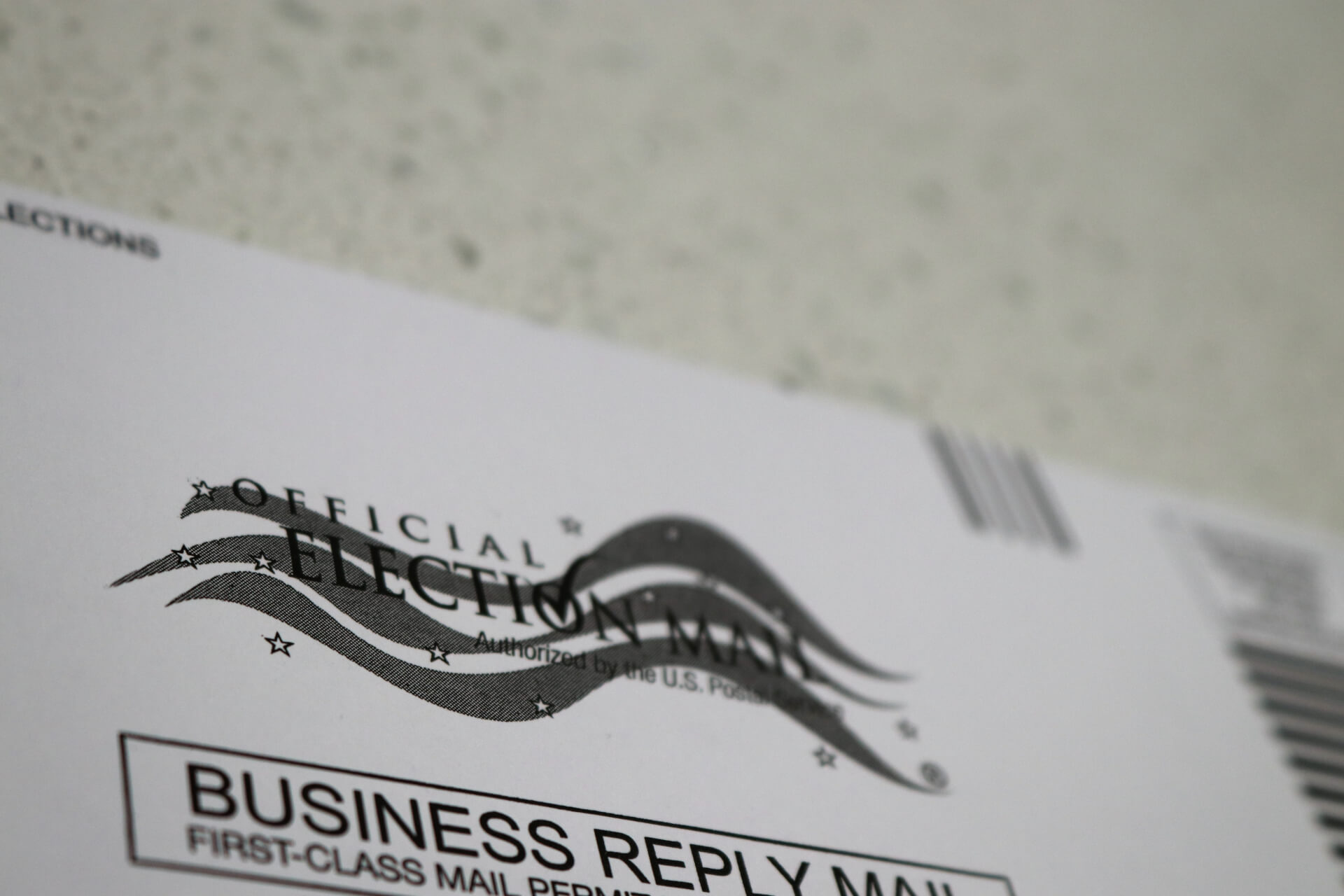House Moves Forward with Bills to Expand Mail-In Voting, Ballot Access for Incarcerated People

After a heated partisan debate, the House gave final approval Saturday to a measure that would permanently expand access to ballot drop-off boxes around the state and establish a more robust ballot tracking system.
House Bill 1047, introduced by Del. Jheanelle K. Wilkins (D-Montgomery) has been touted by Democratic lawmakers and advocates as a way to improve voter confidence in mail-in voting while also expanding access to popular ballot drop-off boxes. In addition to expanding drop-off boxes and ballot tracking, the bill would also allow voters to “cure” absentee ballots that contain errors.
Wilkins emphasized that the 2020 elections, which saw unprecedented mail-in ballot use, went smoothly in the state. Voters overwhelmingly embraced both mail-in voting and ballot drop-boxes during the November election, and Wilkins noted many of the bill’s proposals are meant to further shore-up the security of mail-in ballots.
But as with other efforts to expand mail-in voting, Republicans repeated their concerns about ballot harvesting, or the mass collection and turning in of absentee ballots. Republicans in both the House and Senate have unsuccessfully attempted amendments to restrict the number of ballots a person can drop-off on several bills this legislative session.
The proposal caused the most substantive and intense debate out of the dozens of bills the House gave final approval during a Saturday session with “crossover day” fast approaching on Monday. The debate at times veered into a partisan argument over the security of mail-in ballots, with Democratic lawmakers noting the lack of evidence to support worries over mail-in ballot fraud in election and Republicans saying the state should put additional restrictions in place.
Del. Dereck E. Davis (D-Prince George’s) slammed Republicans for continuing to question the security of mail-in ballots despite a lack of evidence of fraud in the 2020 election, and called the rhetoric “dangerous.”
And Del. Lauren C. Arikan (R-Baltimore and Harford counties) slammed Democrats for dismissing Republican concerns about mail-in ballot security, and read off a list of countries that require more stringent voter identification measures. She, along with other Republican lawmakers, argued the state doesn’t have enough safeguards on mail-in voting.
“We have no way of knowing or proving that there was no stuffing of ballots,” Arikan said.
House Majority Leader Eric G. Luedtke (D-Montgomery) acknowledged that some may try to cheat elections – but cited the slew of security measures already in place to catch attempted fraud.
“Voter fraud exists,” Luedke said. “And we have a system built to stop it.”
Wilkins said she was “surprised” at Republican pushback on the bill, since it sets up additional security measures for ballot drop-off boxes like requiring video surveillance. The proposal ultimately passed the House in a 95-38 vote.
Another voting access bill sponsored by Wilkins was debated on the chamber floor Saturday.
House Bill 222 would expand access to the ballot to Maryland’s prison population by requiring correctional facilities to give people voter registration forms upon their release and provide ballot drop boxes inside facilities for inmates to submit their votes.
Under state law, incarcerated individuals maintain the ability to vote if they are serving time for a misdemeanor or are being held pre-trial. People convicted of felony crimes regain their ability to vote once their sentence has been completed.
Anyone convicted of buying or selling votes permanently loses their registration eligibility.
The bill would also require the state and local boards of elections to provide voter registration forms to incarcerated individuals at least 30 days before the registration window closes, and educate inmates about their voting eligibility and absentee ballots.
Republicans questioned Wilkins about how voting would be regulated behind prison walls.
Del. Johnny Mautz (R-Upper Shore) introduced an amendment to require the State Board of Elections to “ensure election integrity [and] prevent voter fraud and voting rights violations.”
Mautz expressed concern about ballot security in correctional facilities, noting that polling places and ballot drop boxes are very carefully watched and regulated.
Wilkins responded that the bill includes an ombudsman to oversee implementation with the Department of Public Safety and Correctional Services and local jails.
The Department of Public Safety and Correctional Services would also craft regulations to guide the voting process, as well establishing secure voter drop boxes.
“What the bill more importantly does is to make sure that we have a clear process to ensure the right to vote for those incarcerated individuals who have just as much of a right to vote as we do,” Wilkins said.
The bill is expected to receive a final vote Monday.





 Creative Commons Attribution
Creative Commons Attribution